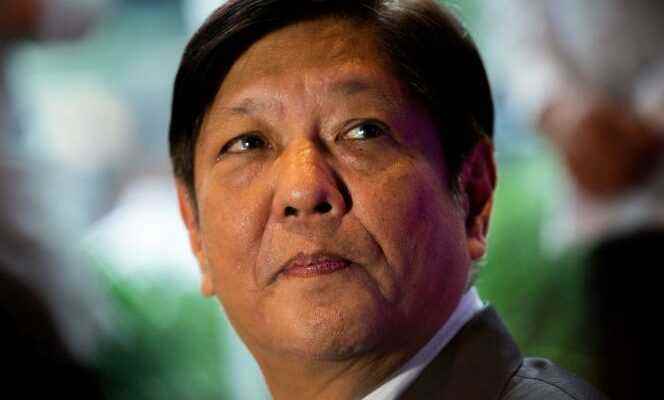advertised as “simple and solemn”the investiture, Thursday, June 30, of the new president Ferdinand Marcos Jr, 64, known as “Bongbong”, in front of the imposing National Museum of Fine Arts, in the heart of Manila, is highly symbolic: behind his ex – spoiled child, and the image of a dilettante that stuck with him for a long time, Bongbong Marcos fulfills the dream long professed by the Marcos family of a return to power, thirty-six years after the collapse of the dictatorship, by February 1986.
This return is the culmination of a three-decade crusade, which enabled Bongbong Marcos, like his sister Imee, to be elected to key positions – those of provincial governor, deputy and then senator, while Imelda, their mother, was twice elected deputy. He has everything of a triumph: elected with 58.7% of the vote, a record for a Philippine president under the current Constitution, Mr. Marcos has through the alliances woven by “Uniteam”, the winning ticket formed with Sara Duterte , the daughter of the incumbent president and victorious vice-presidential candidate (both are elected separately by universal suffrage), a majority in the House of Representatives and the Senate – and the benevolence if not the complicity of the highly malleable institutions of Philippine democracy. The Supreme Court of the country thus rejected, Tuesday, June 28, unanimously, the last two requests for disqualification brought by plaintiffs from civil society because of unpaid taxes from the time of the dictatorship of his father.
In front of the Museum’s colonnaded building, which housed the Philippine Parliament until Marcos Sr. suspended it by declaring martial law in 1972, Bongbong will deliver his first speech as president before a crowd of supporters dressed in red, the color of his country. Placed under high security, the former Parliament was also the site of the first major student demonstrations, in January 1970, which had followed the re-election of Marcos Sr. a few months earlier despite the country’s financial rout.
Marcos son is, for sure, expected at the turn: in terms of economic governance – he kept the portfolio of the Ministry of Agriculture, the only sector he said he wanted to reform during his campaign – and politics, but also positioning in the geopolitical chess game being played out between China and the United States in the region.
Good disposition from Washington
While Beijing sent Vice President Wang Qishan to Thursday’s ceremonies, Washington dispatched Vice President Kamala Harris’ husband Douglas Emhoff – a sign, commentators say, of Washington’s readiness to vis-a-vis the new president, after the turbulences crossed by the bilateral relations under Duterte. “In order to best preserve interests with their former colony, the United States has no choice but to come to terms with the Marcos family,” writes Sophie Boisseau du Rocher in a recent note from the French Institute of International Relations (IFRI)recalling the American objectives of “more actively reinvesting in the region…to counter China’s growing influence and ambitions”.
You have 49.18% of this article left to read. The following is for subscribers only.
